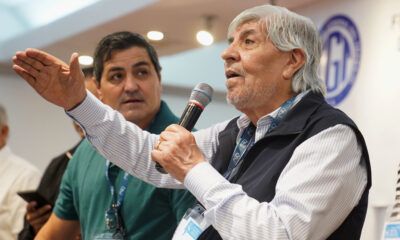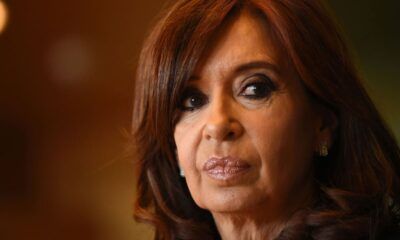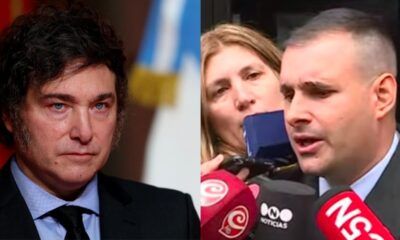INTERNACIONAL
La fiscalía de Bolivia imputó a Evo Morales y pide su arresto por presunto abuso de una menor cuando era presidente

La Fiscalía de Bolivia presentó una “imputación formal” contra el expresidente Evo Morales por el delito de trata agravada de personas en un caso por presunto abuso a una menor de edad cuando era mandatario en 2016 y reactivó una orden de detención en su contra, informó la fiscal que lleva el caso.
El exmandatario es investigado desde septiembre por el caso, pero no se presentó a declarar ante la fiscalía. Tampoco se pudo lograr su detención, después de que el exmandatario se refugiara en su feudo cocalero de Chapare, al centro de Bolivia, y recibiera la protección de sus bases con protestas y bloqueos que derivaron en confrontación con la policía.
La decisión de la fiscalía del lunes responde a que no Morales no acudió a declarar y, transcurridos 10 días desde que fue notificado, “corresponde presentar una imputación formal” y emitir una orden de detención, dijo en rueda de prensa la fiscal Sandra Gutiérrez que lleva la investigación citando informes de la policía y la fiscalía.
El mismo lunes, la policía inició su regreso a la zona de Chapare, desde las protestas que lideró el exmandartario el mes pasado Morales. El cuerpo uniformado fue forzado a salir tras denuncias de agresiones y de amedrentamiento por parte de seguidores del exmandatario.
Desde que la fiscalía abrió la investigación, Morales se atrincheró en el Chapare y vive en la sede de los sindicatos cocaleros protegido hasta por tres cordones de seguridad por parte de sus bases.
Morales acusó antes a su exaliado y sucesor, el presidente Luis Arce, de confabular con algunos jueces para perseguirlo y proscribirlo. “Es un plan negro para eliminarme política y físicamente para sacarme de la carrera electoral”, dijo antes.
El exmandatario no se pronunció inmediatamente sobre la orden de detención y la imputación formal por el caso de presunto abuso a una menor de edad que resultó embarazada.
La fiscal indicó que ahora “un juez de medidas cautelares debe señalar día para una audiencia de medidas cautelares”, dijo.
También tiene orden de aprehensión la madre de la víctima. El padre de ella es el único detenido en el caso.
“Acá no hay nada político. El señor Morales embarazó a una menor de 15 años en 2016, quien dio a luz una niña”, dijo la fiscal el lunes. El agravante, según la funcionaria, es que “Morales era presidente del país en ese momento».
La investigación se lleva a cabo en la sureña región de Tarija, donde vive la víctima con sus padres y adonde debió acudir Morales a declarar en el mes de octubre. El exmandatario evitó su detención entonces con un recurso legal e inició una ofensiva en contra del gobierno de Arce con protestas y bloqueos carreteros.
INTERNACIONAL
German Chancellor Olaf Scholz loses no-confidence vote, election called for early next year

The German parliament accepted Chancellor Olaf Scholz’s invitation to withdraw its confidence in him and his government on Monday, clearing the way for an early election on Feb. 23 necessitated by the collapse of his government.
Scholz’s three-party coalition fell apart last month after the pro-market Free Democrats quit in a row over debt, leaving his Social Democrats and the Greens without a parliamentary majority just as Germany faces a deepening economic crisis.
Under rules designed to prevent the instability that facilitated the rise of fascism in the 1930s, President Frank-Walter Steinmeier can only dissolve parliament and call an election if the chancellor calls, and loses, a confidence vote.
German Chancellor Olaf Scholz arrives at the lower house of parliament Bundestag in Berlin, Germany, on Dec. 16, 2024, to hear whether the parliament will rescind its confidence vote. (Liesa Johannssen)
GERMANY’S SCHOLZ REJECTS CALLS FOR NO-CONFIDENCE VOTE AS COALITION GOVERNMENT COLLAPSES
The debate preceding the vote also opened serious campaigning for the election, with party leaders trading ill-tempered barbs.
The chancellor and his conservative challenger, Friedrich Merz, who surveys suggest is likely to replace him, charged each other with incompetence and lack of vision.
Scholz, who will head a caretaker government until a new one can be formed, defended his record as a crisis leader who had dealt with the economic and security emergency triggered by Russia’s full-scale invasion of Ukraine in 2022.
If given a second term, he said, he would invest heavily in Germany’s creaking infrastructure rather than making the spending cuts he said the conservatives wanted.
«Shortsightedness might save money in the short term, but the mortgage on our future is unaffordable,» said Scholz, who served four years as finance minister under a previous coalition with the conservatives before becoming chancellor in 2021.
GERMAN CHANCELLOR SCHOLZ WARNS NEXT EUROPEAN COMMISSION PRESIDENT AGAINST COURTING FAR-RIGHT SUPPORT
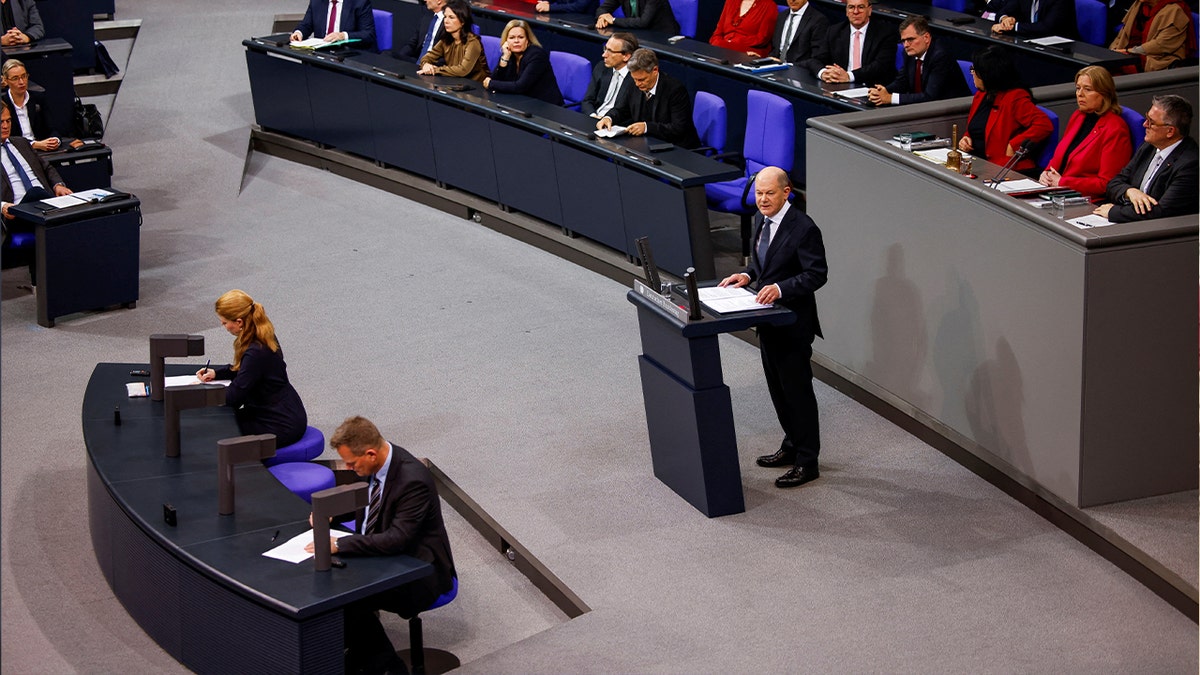
German Chancellor Olaf Scholz speaks on the day of a confidence vote at the lower house of parliament Bundestag in Berlin, Germany, on Dec. 16, 2024 (Axel Schmidt)
Merz told Scholz his spending plans would burden future generations and accused him of failing to deliver on promises of rearmament after the start of the Ukraine war.
«Taking on debt at the cost of the young generation, spending money – and you didn’t say the word ‘competitiveness’ once,» said Merz.
Neither mentioned the constitutional spending cap, a measure designed to ensure fiscal responsibility that many economists blame for the fraying state of Germany’s infrastructure.
Conservatives In Clear Lead In Opinion Polls
The conservatives have a comfortable, albeit narrowing lead of more than 10 points over the SPD in most polls. The far-right Alternative for Germany (AfD) is slightly ahead of Scholz’s party, while the Greens are in fourth place.
The mainstream parties have refused to govern with the AfD, but its presence complicates the parliamentary arithmetic, making unwieldy coalitions more likely.
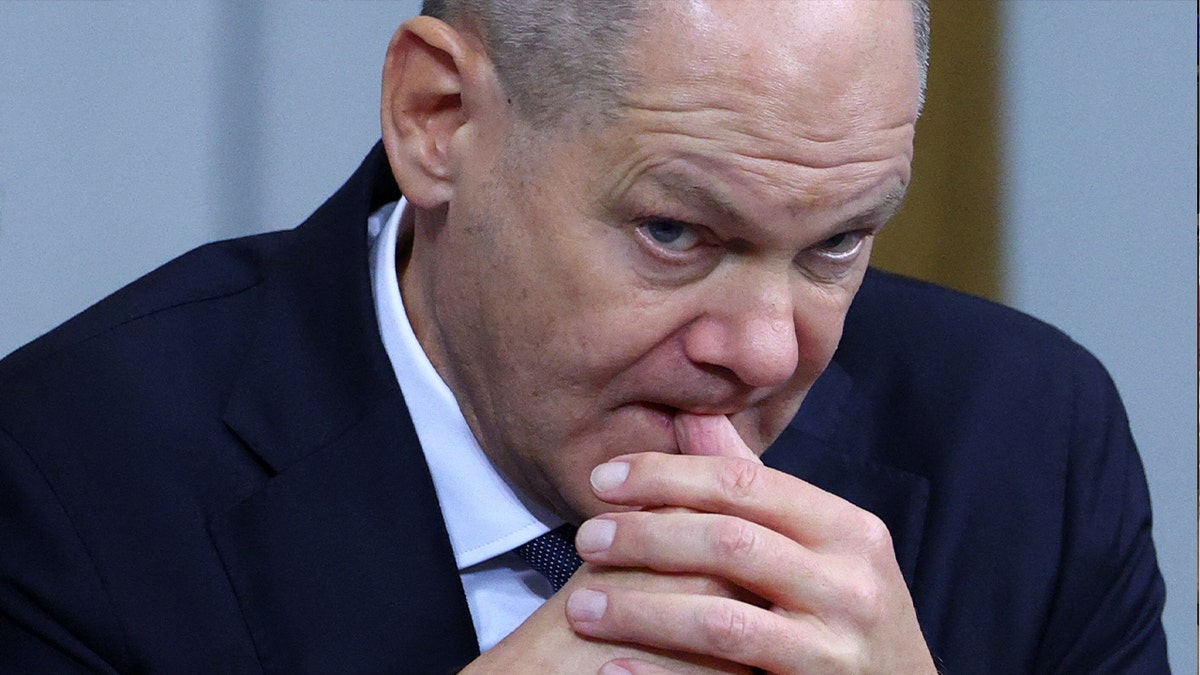
Germany’s Olaf Scholz has lost a confidence vote from the German parliament, paving the way for an early election to replace the chancellor. (Lisi Niesner)
Scholz has outlined a list of measures that could pass with opposition support before the election, including $11 billion in tax cuts and an increase in child benefits already agreed on by former coalition partners.
The conservatives have also hinted they could back measures to better protect the Constitutional Court from the machinations of a future populist or anti-democratic government and to extend a popular subsidized transport ticket.
CLICK HERE TO GET THE FOX NEWS APP
Measures to ease unintended burdens on taxpayers could also pass if regional governments agree, but Merz rejected a Green proposal to cut energy prices, saying he wanted a totally new energy policy.
Robert Habeck, the Greens’ chancellor candidate, said that was a worrying sign for German democracy, given the growing likelihood in a fractured political landscape that very different parties would again have to govern together.
«It’s very unlikely the next government will have it easier,» Habeck said.
AfD leader Alice Weidel called for all Syrian refugees in Germany to be sent back following the collapse of Bashar al-Assad’s regime.
-
POLITICA3 días ago
Hugo Moyano acusó al Gobierno de querer meterse en las paritarias para que el aumento no supere el 1% y amenaza con un paro antes de fin de año
-
POLITICA2 días ago
Causa Hotesur-Los Sauces: la Corte rechazará el último recurso de Cristina Kirchner y abre el camino para el juicio oral
-
POLITICA2 días ago
Patricia Bullrich habló sobre el gendarme detenido en Venezuela y reveló dónde lo tiene encerrado el régimen de Nicolás Maduro
-
POLITICA2 días ago
Polémica: a partir de enero, los senadores pasarán a cobrar dietas de 9,5 millones de pesos mensuales
-
POLITICA1 día ago
Si Milei hace el 15 por ciento de lo que prometió, se queda ocho años
-
CHIMENTOS1 día ago
Por qué afirman que Javier Milei y Yuyito González están al borde de la separación: «Ya no la aguanta más»



















